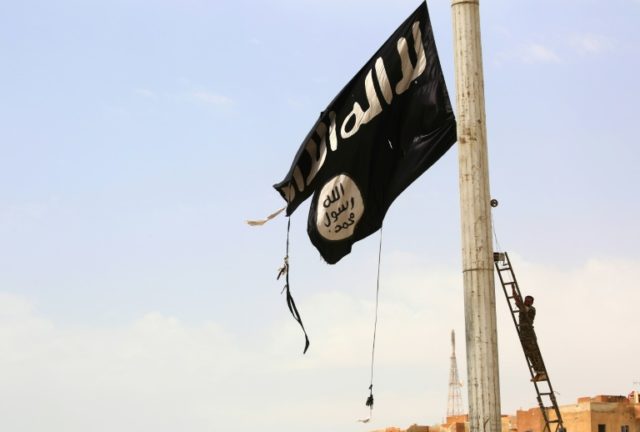United Nations investigators this week revealed that Islamic State (ISIS/ISIL) jihadis put between 6,000 and 12,000 bodies – including women, children, and invalids – in 202 mass graves discovered across Iraq alone, mainly in the country’s Nineveh and Kirkuk provinces, home to high concentrations of Christians and other minorities.
Families of missing people in Iraq face significant challenges establishing fate of loves ones after discovery of mass graves in former ISIL strongholds. https://t.co/SbCuIXio0H pic.twitter.com/mN2w6DCZcu
— United Nations (@UN) November 7, 2018
The revelation is found in a new U.N. report released Tuesday, titled Unearthing Atrocities.
In the report, the U.N. noted:
Between June 2014 and December 2017, the ‘Islamic State of Iraq and the Levant’ (ISIL) seized large areas of Iraq as part of its so‐called Caliphate, leading a campaign of widespread violence and systematic violations of international human rights and humanitarian law – acts that may amount to war crimes, crimes against humanity, and possibly genocide under international criminal law.1 To‐ date, over two hundred mass graves, a legacy of ISIL’s terror, have been discovered in areas formerly controlled by ISIL. They contain the remains of thousands of victims, the majority of whom may never be identified. These large‐scale crime scenes are sites of harrowing human loss, profound suffering and shocking cruelty.
…
At the time of publication, based on information from Iraqi authorities, [the U.N.] had documented 202 mass graves sites, the largest numbers located in the governorates of Ninewa (95), Kirkuk (37) Salah al‐Din (36) and Anbar (24). Current estimates provided to [the U.N.] range from 6,000 to more than 12,000 victims buried in these sites. Victims include women, children, elderly and persons with disabilities, members and former members of the Iraqi armed forces and police, and some foreign workers.
Iraqi Christians consider Ninewa (or Nineveh) — once home to the largest concentration of minority groups in the country —to be their historical homeland. Mosul, the capital of Nineveh province, served as ISIS’s primary stronghold in Iraq.
“While it is difficult to determine the total number of people in these graves, the smallest site, in west Mosul, contained eight bodies while the biggest is believed to be the Khasfa sinkhole south of Mosul which may contain thousands,” the U.N. acknowledged.
“The mass grave sites documented in our report are a testament to harrowing human loss, profound suffering and shocking cruelty,” Special Representative for Iraq of the Secretary-General of the U.N. Jan Kubis proclaimed in a statement issued Tuesday. “Determining the circumstances surrounding the significant loss of life will be an important step in the mourning process for families and their journey to secure their rights to truth and justice.”
The international body asserted that evidence gleaned from the mass graves will be crucial to ensuring investigations, prosecutions, and convictions of those responsible. U.N. investigators stressed that the sites may contain critical forensic material that could assist in the identification of victims and their return to the families.
The U.N. explained:
This report highlights the challenges faced by Iraqi authorities in conducting exhumations, investigations, and identifying human remains, as well as the challenges faced by relatives seeking to obtain information on the fate and whereabouts of their missing family members, and, if dead, their mortal remains. In addition, this report highlights international law and standards relating to Iraq’s obligations to investigate and prosecute the mass killings that occurred in the context of this conflict and best practices relating to the protection and examination of mass grave sites, including forensic investigation of mass graves in support of criminal processes.
Michelle Bachelet, the U.N. High Commissioner for Human Rights, noted in a statement that “horrific crimes” committed by ISIS have left a scar on the victims and their families, adding that “thousands of women, men, and children still [remain] unaccounted for,”
“Their families have the right to know what happened to their loved ones. Truth, justice and reparations are critical to ensuring a full reckoning for the atrocities committed by ISIL,” she added.
ISIS controlled large swathes of Iraq between June 2014 and December 2017, when U.S.-backed Iraqi troops declared victory over the terrorist group.
The U.S. and United Nations have officially accused ISIS of committing genocide against Christians, Yazidis, and other ethno-religious minorities in the Middle East.
Although the Pentagon’s office of the inspector general (OIG) recently determined that “ISIS has lost all territory it held in Iraq,” it warned that the jihadis still pose a threat as an “underground” insurgency.
“Despite the loss of almost all of its territory, the terrorist organization kept some of its bureaucratic structures in place and continued to raise funds,” the OIG added.
According to the Pentagon’s watchdog agency, the U.S. government and U.N believe an “ISIS resurgence” is possible “without improvements to security, stability, and governance in Iraq and Syria.”
“Clearing terrorists from remote and largely ungoverned terrain is a slow and difficult process, and eliminating ISIS from rural Iraq and Syria could take years,” the inspector general noted.

COMMENTS
Please let us know if you're having issues with commenting.